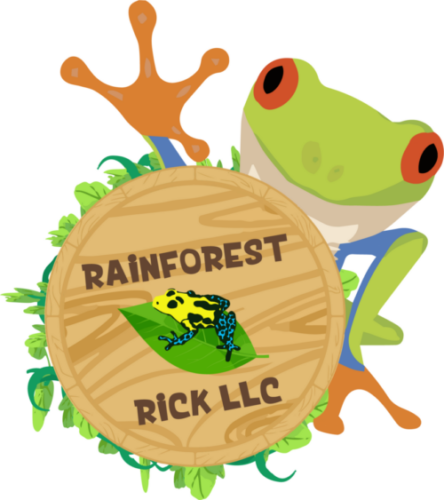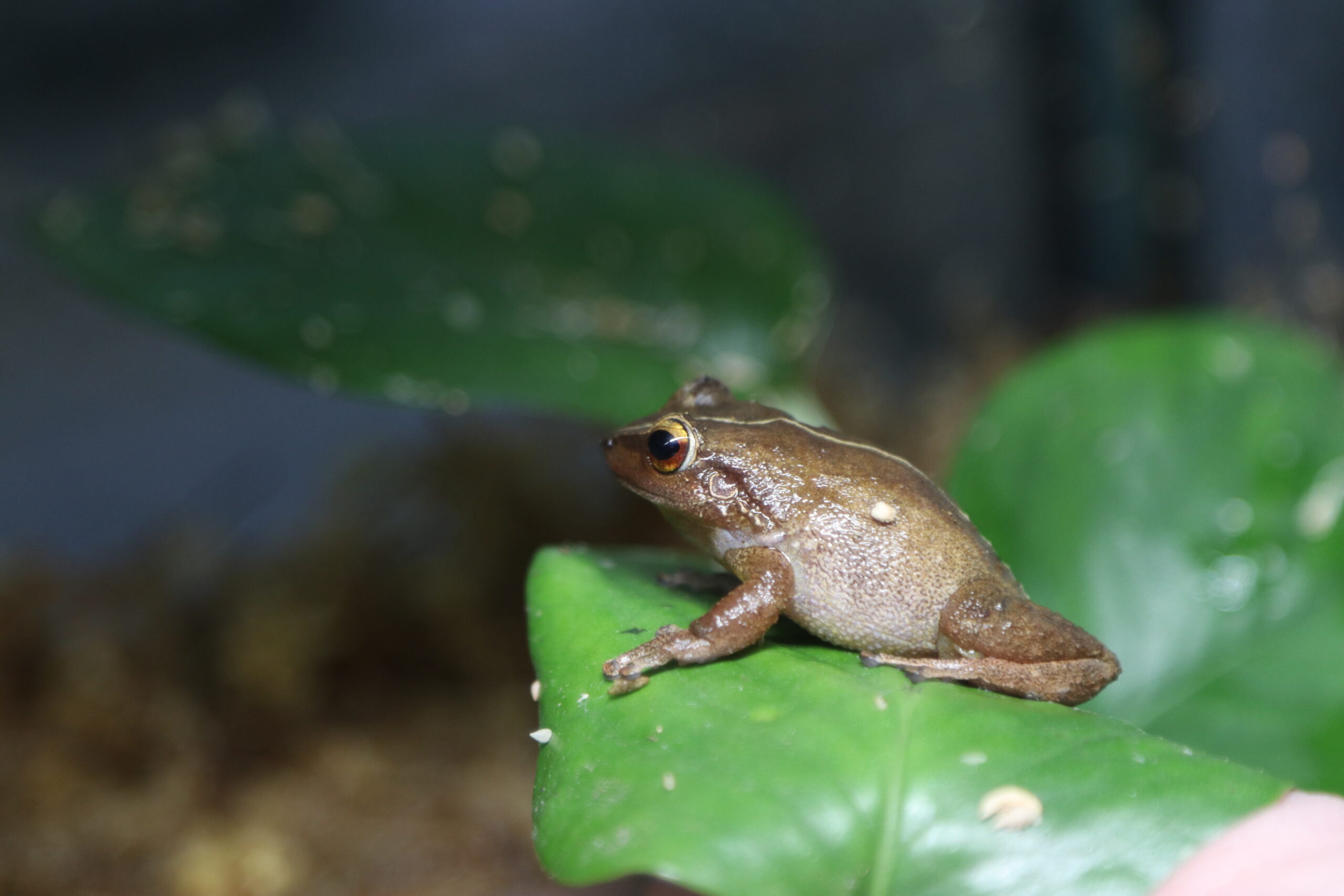

Hola, I’m Jace Ocker, a digital curator and frog apprentice working with Rick. I currently attend Marquette University where I study media and share a passion for herpetology!
During the most recent winter break I was able to join some fellow students in an immersion experience in San Juan, Puerto Rico. It just so happens that the national symbol of Puerto Rico is El Coqui, a tree frog that is found all over the island. The frog spends its life in the trees. Just as the Puerto Rican people themselves, they may be small in stature, but carry a big voice. The call of the Coqui is universally known and during the nighttime the chorus of the frogs is echoing throughout the island to give a pleasant lullaby before bed, or an anthem before going out downtown.
Please take a look at some of my highlights of the trip as well as Puerto Rico’s own…El Coqui!
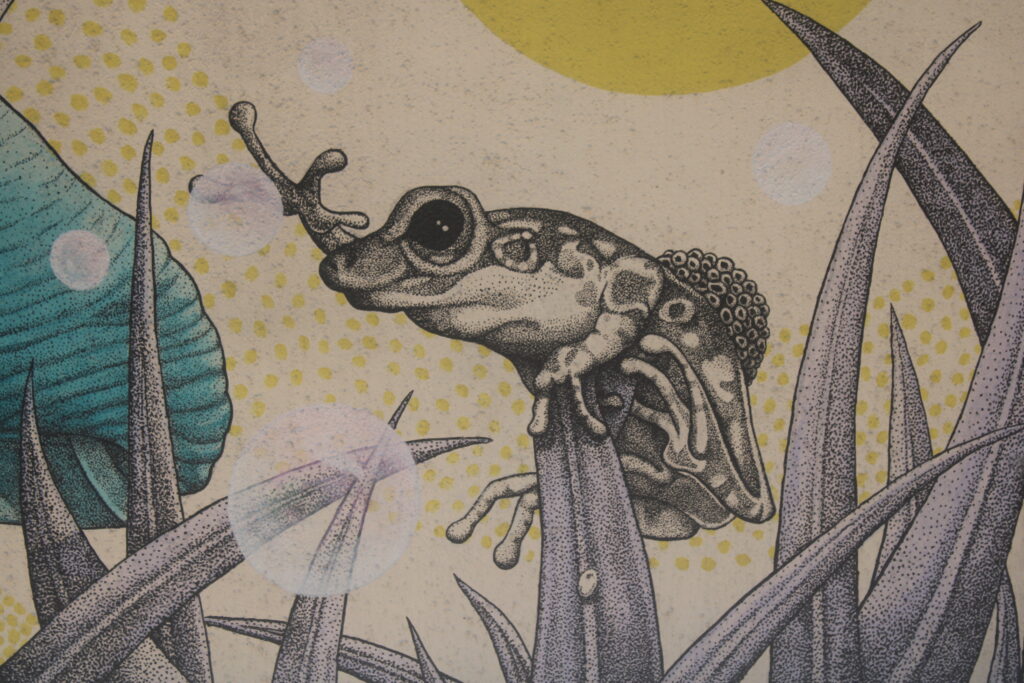
Just outside of the Casino Del Mar there is a Coqui Tree Frog, the national symbol of Puerto Rico, welcoming you as you journey inside…
Below are some pictures from the trip!
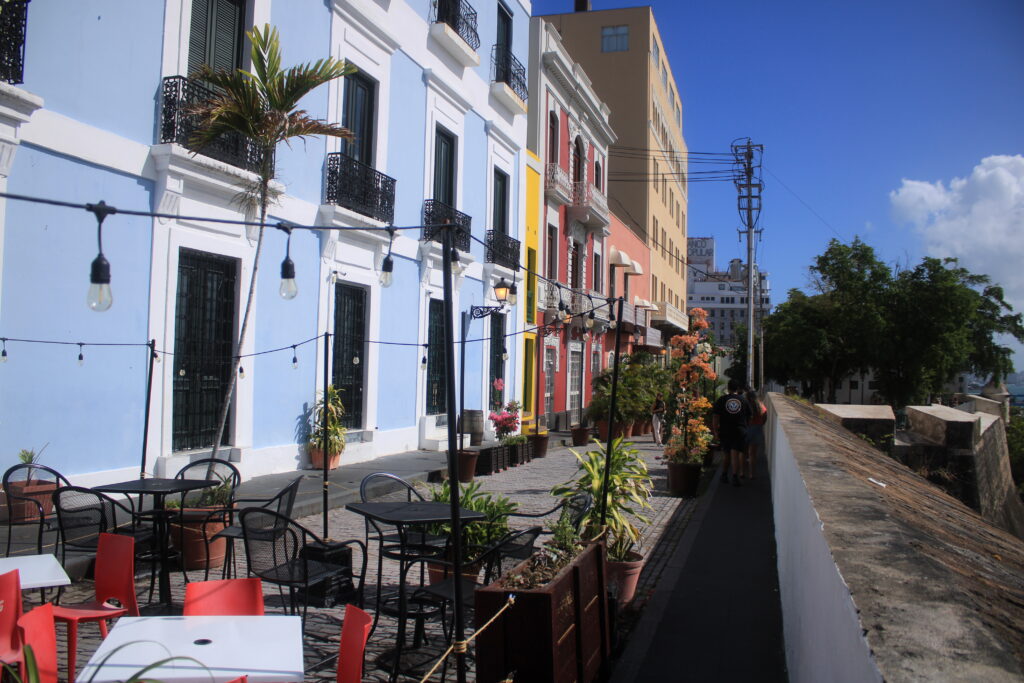
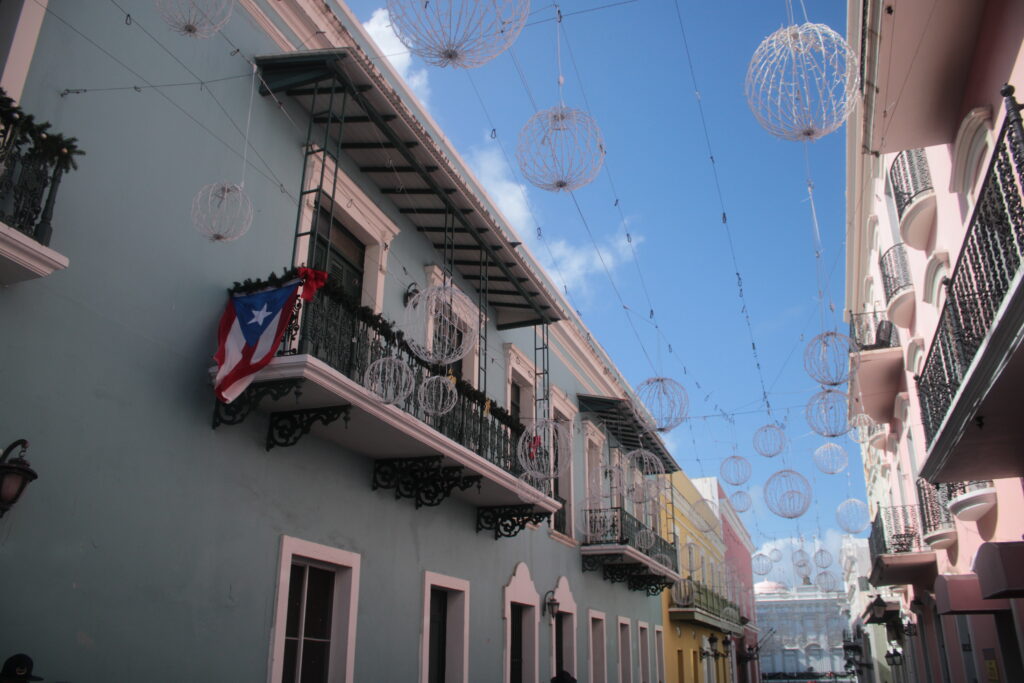
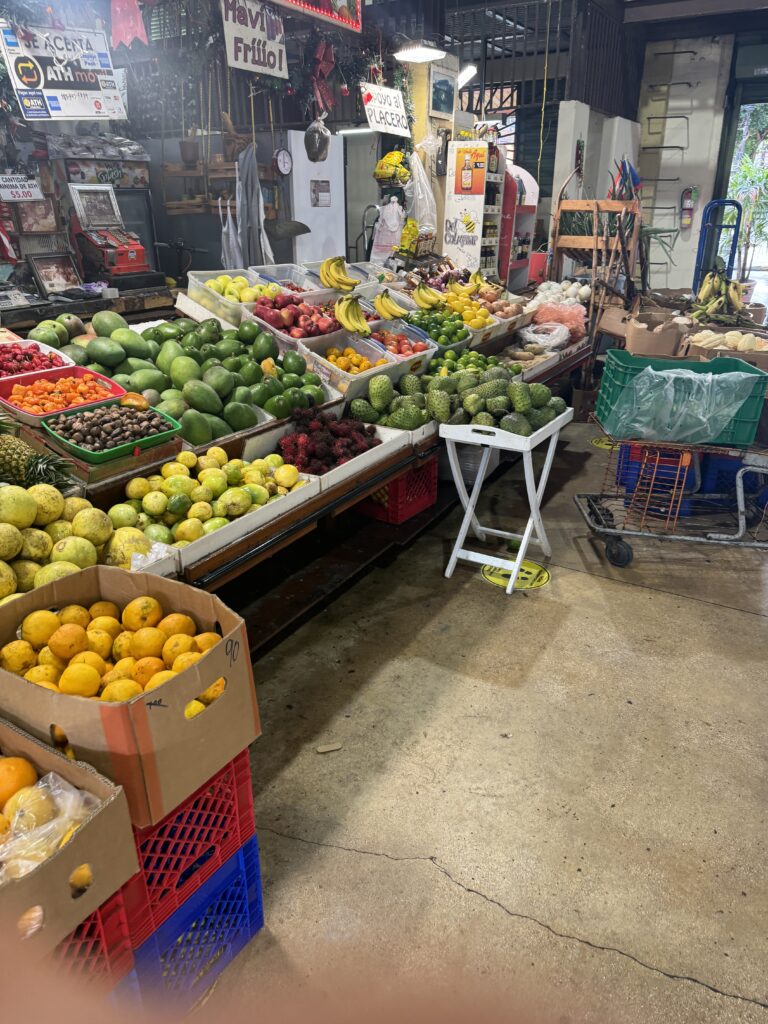
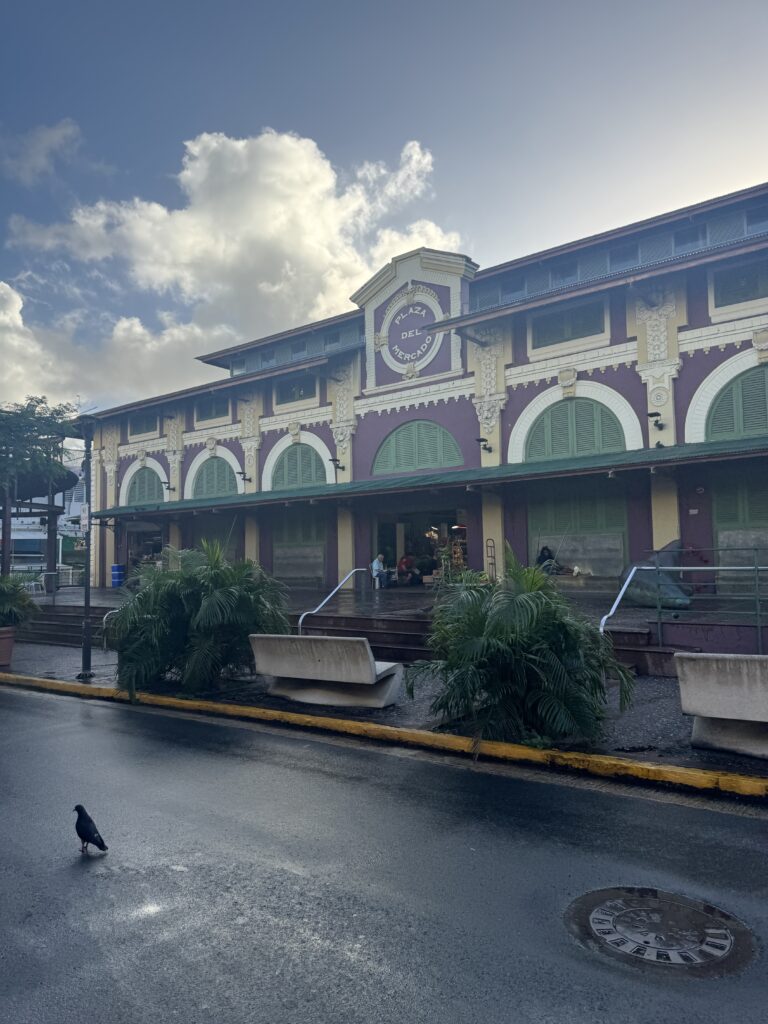
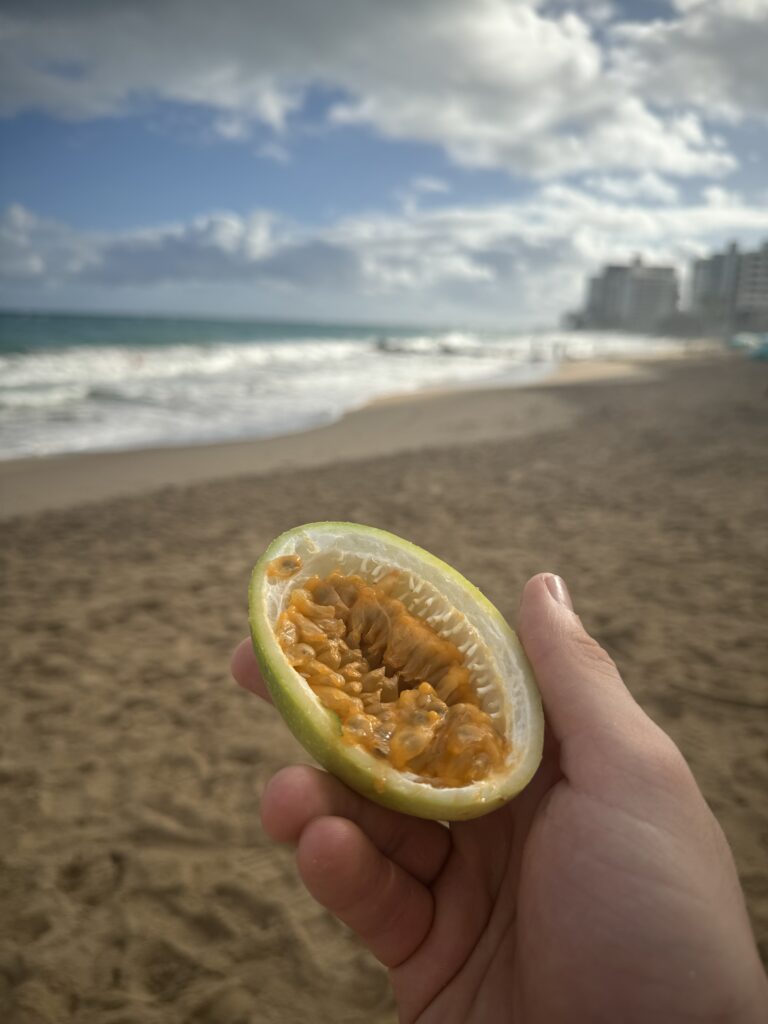

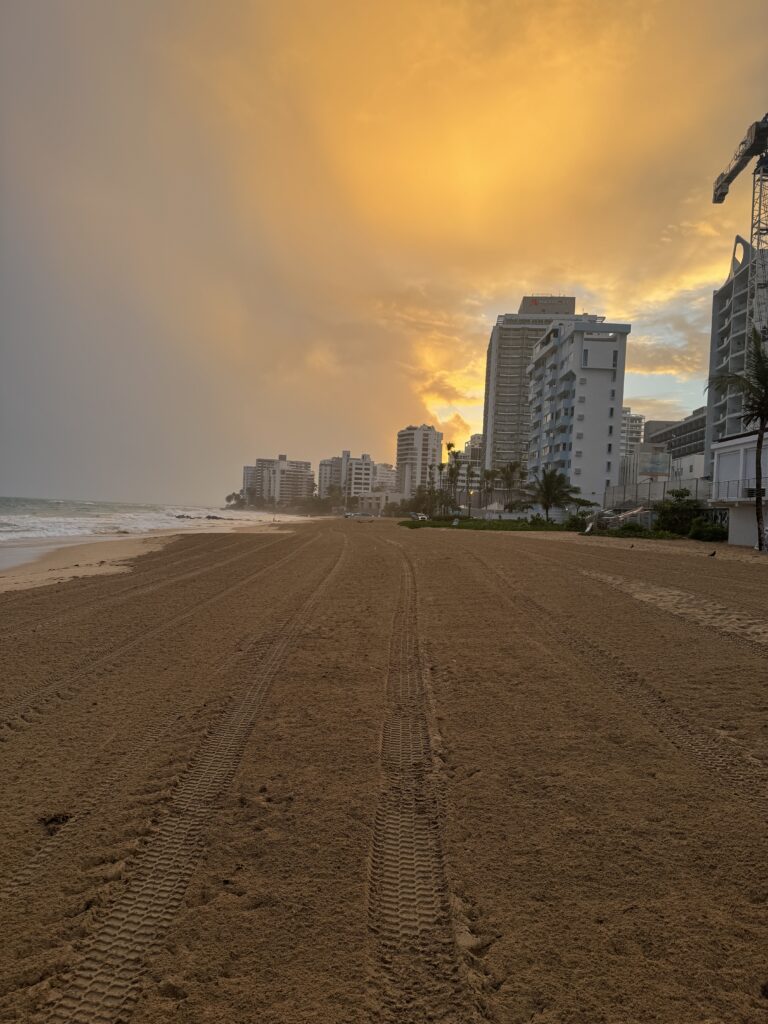

View one of our Coquis below and listen to hear their calls in the frog room:
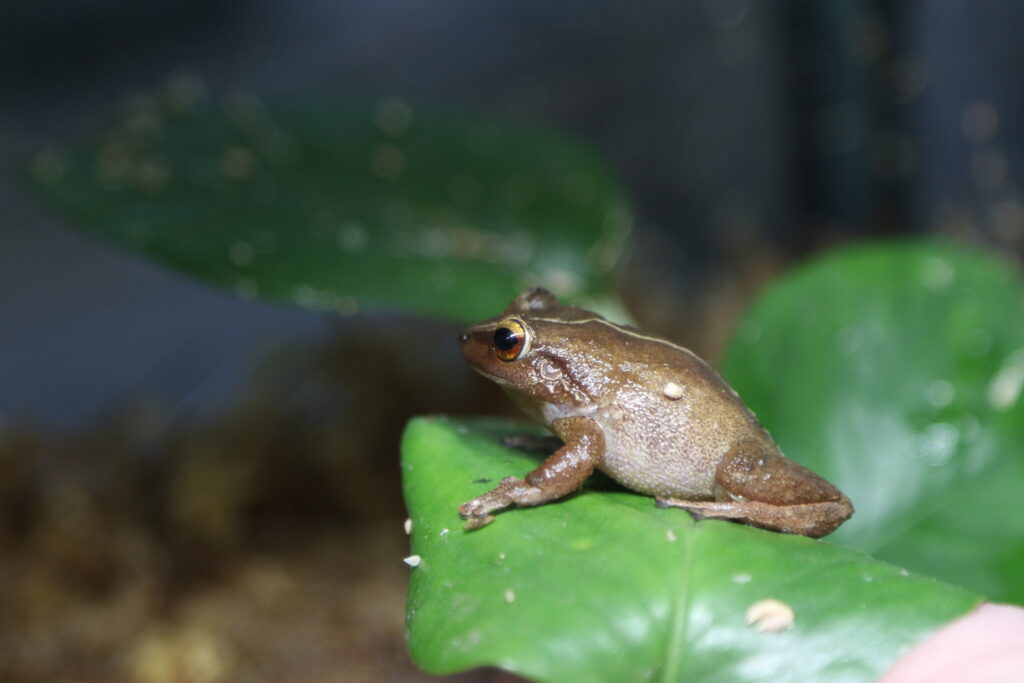
In the frog room we currently have three Coquis (two females, one male) making a breeding trio conveyor belt with the two ladies. They typically lay eggs in black prescription drug canisters. In the wild the eggs are found in odd spots surrounding the house, or up in burrows on the trees. A new batch of eggs arrived in our vivarium right before I left in early January.
Coqui frogs are noteworthy because their breeding habits: they are known for “direct development.” They skip the tadpole stage, and therefore there is no need for pools of water when they reproduce. The eggs are observed to be 20x larger than a normal frog egg, allowing it to transform into a complete frog inside the egg before hatching out.
The observable difference is that the eggs turn into a miniature frog and entirely skip the tadpole phase. However, newly hatched frogs are so tiny they can’t eat the typical fruit flies. We cultivate Springtails instead
